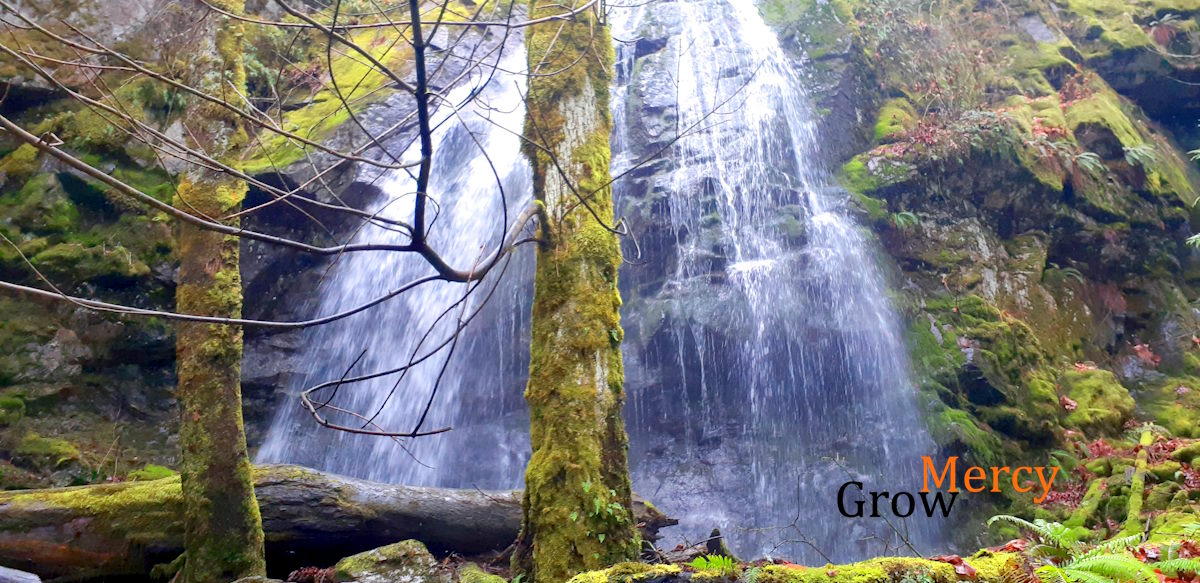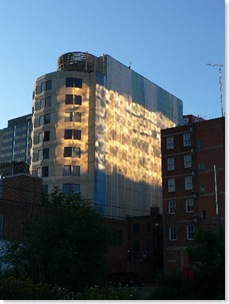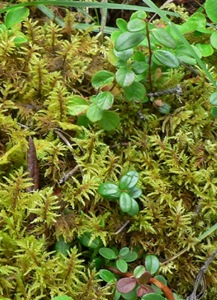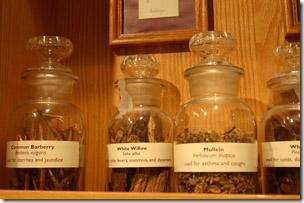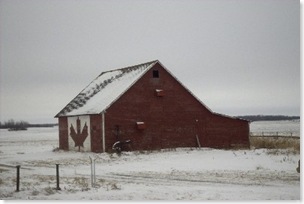 Memories lead their own lives and invest their own peculiar currency. My two earliest memories have to do with a tricycle. The first is an almost a pastoral scene. I am on my tricycle, in the natural depression between the house and the barn, watching the older kids–my brothers and sister and our cousins–play hide-and-seek. It’s early evening. the farm has settled down, the cows are out in the pasture and the red barn and the hayloft and the surrounding stretch of grassy ground has elevated itself into a source of intrigue and adventure. It’s a foreign land full of secrets. Arms folded, resting on the handlebars, I watch bodies creep and the stalk, and see the slow then sudden movements of human silhouettes in a growing twilight.
Memories lead their own lives and invest their own peculiar currency. My two earliest memories have to do with a tricycle. The first is an almost a pastoral scene. I am on my tricycle, in the natural depression between the house and the barn, watching the older kids–my brothers and sister and our cousins–play hide-and-seek. It’s early evening. the farm has settled down, the cows are out in the pasture and the red barn and the hayloft and the surrounding stretch of grassy ground has elevated itself into a source of intrigue and adventure. It’s a foreign land full of secrets. Arms folded, resting on the handlebars, I watch bodies creep and the stalk, and see the slow then sudden movements of human silhouettes in a growing twilight.
The second memory is seeing my tricycle roll slowly into the dugout, and me chasing after it. I had left it on its own for just a few moments and it betrayed me. I see its red frame and white-spoked wheels submerged and sinking and just before I head in after it my brother pulls me back to safety. I have a parallel memory to this one that has an older brother nudge it down the fine gravel slope to its watery decent. I have no idea why I have this memory. But this second memory lines up with another memory of my brothers teasing me by holding me over the well beside the dugout. But I’m not sure how accurate this memory is. It’s possible that a jest, a teasing threat (I do know that my brothers would do me no harm) has transformed itself into the vividness of an actuality. Which means of course, that threats of harm can be as effectual as an actual misdeed.
But of course I wasn’t dropped into the dark column of water and I was stopped from slipping under the surface of the dugout and my tricycle was fished out before it sank to an irretrievable depth. Had these things not happened my fears would no doubt be compounded, more complex than a simple fear of water–a fear I now manage with relative ease.
Thing is, memories possess an elasticity. They aren’t so much in the past as they are ahead of us, divining our paths and directing our actions. For years I had a powerful desire to become a detective. Perhaps the intrigues I saw while sitting on my tricycle in the farm yard was the seed for this urge. This is a light and somewhat amusing example. On the other end, memories can at times protect us from a reality and at other times compel us to move in and deal with reality. In other words, memories can be unwelcome gifts.
